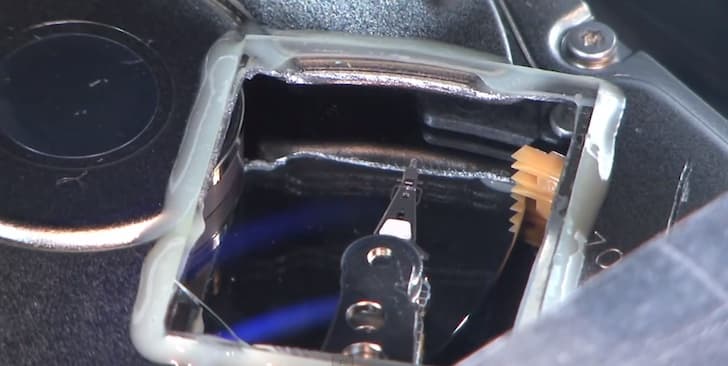TDK's working on 40 TB HDDs for 2020 launch
With our cameras going full HD and the world moving over to 4K videos, it's no surprise that our digital data storage needs are going to grow exponentially in coming days. Our current generation of HDDs are capable of storing only a few hundred GBs now, with the max storage hitting limits at about 3TB in the 3.5" form factor. TDK understands this need and has already began working on a new heat-assisted recording technology that will allow creation of HDDs that can store up to 40 TB of data. It will eliminate the limitations imposed by the current technique that uses recording media with high magnetic coercivity.

Coercivity of the medium aka the quantity of reverse magnetic field required to change the value of the data to be stored is decreased through laser assisted heating. The overall effect is that the recording density of the medium gets increased.
The issue with laser assisted heating is that it ends up heating the parts of the medium that shouldn't be touched. This often results into loss of important data. This can be avoided by using a very focused & sharp laser so that heating can be localised with desired precision. TDK's engineers have developed a new type of device, which they call 'near-field light generator' to localise the heating to area of just a few nanometers wide. TDK says this technique allows them to have a light spot in 1/10 of the area used in Blu-Ray disk recording.
TDK has also verified the technology by reading and writing multiple files simultaneously. Heat assisted heads are being tested in TDK's labs and the company is now ready to take it to the masses through partnership with Seagate Technology - one of the world leaders in digital data storage. Through their collaboration, TDK and Seagate were able to demonstrate a product that runs on Windows 7 and is almost ready to be commercially available.
Source: #-Link-Snipped-#

Coercivity of the medium aka the quantity of reverse magnetic field required to change the value of the data to be stored is decreased through laser assisted heating. The overall effect is that the recording density of the medium gets increased.
The issue with laser assisted heating is that it ends up heating the parts of the medium that shouldn't be touched. This often results into loss of important data. This can be avoided by using a very focused & sharp laser so that heating can be localised with desired precision. TDK's engineers have developed a new type of device, which they call 'near-field light generator' to localise the heating to area of just a few nanometers wide. TDK says this technique allows them to have a light spot in 1/10 of the area used in Blu-Ray disk recording.
TDK has also verified the technology by reading and writing multiple files simultaneously. Heat assisted heads are being tested in TDK's labs and the company is now ready to take it to the masses through partnership with Seagate Technology - one of the world leaders in digital data storage. Through their collaboration, TDK and Seagate were able to demonstrate a product that runs on Windows 7 and is almost ready to be commercially available.
0
